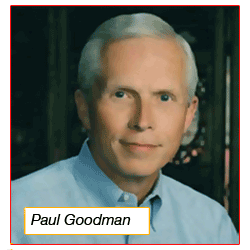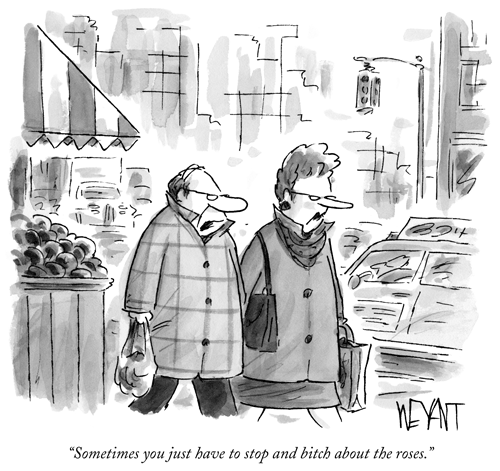|
In this COVID-19 lockdown late January of 2021 as we receive notes of
greetings and good wishes for Christmas cards that were sent in early
December, we have been thinking, based on the slowdown in the U.S. mail
service maybe it is not too early despite the snowfall and cold to think
about flowers.
Always a big part of the Valentine’s
Day celebration now less than one month away, we are wondering if space
demand for floral shipments that always cube out before they weigh out
will be severely impacted by demands to move vaccines?
Ready To Roll
Sheri Myers, at Myers Flower and Bridal
Shop told the Washington Indiana Herald: “For Valentine’s
Day, the numbers are there and we are ready to roll.
“The florist business appears to be
one that has managed to stay healthy during the COVID-19 pandemic, at
least locally.
“The demand for flowers has been up
ever since the coronavirus hit,” said Myers.
“People are sending more flowers than
ever because they are forced to be separated.
“We’ve sent a lot of flowers
to hospitals and nursing homes, just trying to spread some joy during
some difficult times,” she said.
Petal To The Metal
 “When
it comes to planning for a profitable Valentine’s Day, there are
no secrets,” said Paul Goodman, MBA, PFCI, a longtime floral industry
financial professional associated with the Society of American Florists
(SAF). “When
it comes to planning for a profitable Valentine’s Day, there are
no secrets,” said Paul Goodman, MBA, PFCI, a longtime floral industry
financial professional associated with the Society of American Florists
(SAF).
“Practical, achievable guidance can
set up any retailer for a holiday success,” Goodman said
“Valentine’s Day profitability
is really about smart management,” explained Goodman. Holiday profitability
was the focus of a recent Society of American Florists virtual event headlined
by Goodman, a longtime contributor to Floral Management. During the 30-minute
session, which included time for a Q&A, Goodman detailed three core
areas (productivity, controlling COGS-Cost of Goods and staffing) that
every retailer needs to prioritize every year — and especially during
a holiday that falls on the Sunday of a three-day weekend in a pandemic.
He also tackled a question high on the mind
of every retailer moving deeper into holiday prep: What the heck to expect
this year? “Normally a Valentine’s Day on a Sunday is going
to have a decrease in volume,” Goodman said.
“However,
this year, we have the ‘COVID effect’ — sales overall
have actually increased for flowers. Because of that, I think there will
be a COVID effect for Valentine’s Day.” Goodman’s advice:
Track sales closely in January and compare those in real time, year over
year, to your 2020 returns. Those trend lines will help inform your thinking
regarding how much, or how little, the pandemic could shift your Valentine’s
Day returns this year.
“If you are seeing an increase in
sales [in January], you can expect a COVID effect for your business for
Valentine’s Day,” Goodman said.
For More Than A Century
SAF, based in Alexandria Va., knows only
too well the uncertainty facing florists as they struggle through the
double whammy of both supply and demand.
The group (joined by everybody else) cancelled its 136th Annual Convention
last September in Phoenix.
Looking to extend a helping hand and reassure
its membership, Goodman, a well-respected money guy, which as we all know
is what it comes down to, hosts SAF Webinars regularly for the organization.
 But
SAF is also rich in member-related support for each other. But
SAF is also rich in member-related support for each other.
“There are those rare people who tackle
their taxes the first week of January … and then there are the rest
of us,” SAF said.
“Valentine’s Day follows a similar
pattern; without prompting, most retailers wait to order until mid-February
— an action that causes unnecessary stress and hurts your profit
potential.”
Eileen Weber, of Illinois retailer Lake
Forest Flowers & Greenhouses and member AAF (American Academy of Floriculture)
says, “To minimize the last-minute-order blues, we proactively call
past clients with a pitch that conveys confidence and outstanding service.”
News Air Cargo Can Use
To those sentiments we add, observing how
our shippers are going about their business right now can be educational
and motivating.
Bloombastic Bloomtastic
 As
example, with COVID-19 many florists have had to cancel their very profitable
in-store floral events, some pivoting instead to virtual happenings. Heather
Waits of Bloomtastic Florist in Columbus, Ohio, who also teaches business
strategies put together a presentation titled “Reignite Your Business-Virtual
Events”. As
example, with COVID-19 many florists have had to cancel their very profitable
in-store floral events, some pivoting instead to virtual happenings. Heather
Waits of Bloomtastic Florist in Columbus, Ohio, who also teaches business
strategies put together a presentation titled “Reignite Your Business-Virtual
Events”.
Interestingly this webinar was available
in June of last year and basically grew out of the inability of Bloomtastic
to drive any business during the total Ohio shutdown.
But down was not out, as inventive Heather
put together a playbook to supplement income by offering a series of online
events or virtual classes in which she shared “how to” advice
to subscribers that advanced the floral arts so that people who were also
locked down might gather the skills to create floral presentations for
their homes from, we assume, local rose bushes or even wild or gardened
flowers.
“Weddings were not happening, we were
not allowed to deliver flowers or have pick-ups, so we were not working
at all,” Heather said.
So “Reignite Your Business”
a step-by-step bright, engaging 38-minute presentation/class is all about
detailing how to market to the retail customers of member businesses of
SAF, and any retail florist, at no cost to SAF members and a nominal fee
of USD$12 to anybody else.
As mentioned, SFA is a big generational
association, which serves its members as lobbyist and also provides all
the bells and whistles of an industry leader. But SFA also is a sanctuary
for its membership in a time of unspeakable crises as it pivots and floods
the market with webinars. Included are the aforementioned financial strategies
and lessons such as this ‘how to retail” all intended to train
members on how they might get a leg up by sharpening their outlook and
developing some basic market survival skills.
Call Your Therapist
There is a focused lens into some thinking
going on right now at the source of our business from the flower business
as logistics providers, that you may have not looked through before.
The Sustainable Flowers Podcast, a program
for Canadian growers based in Albert, decided the best thing to talk about
in January to their audience was mental health.
 “After a very strange year in 2020,”
said Toby Malloy, a mental health specialist and lecturer who serves as
the Women's President of the National Farmers Union, and is also a farmer.
“After a very strange year in 2020,”
said Toby Malloy, a mental health specialist and lecturer who serves as
the Women's President of the National Farmers Union, and is also a farmer.
“Our strong desire to connect has
found some positive alternatives.
“Many people thought ‘How can
I possibly do my work when we can’t meet face to face?’
“The move to phone and Zoom replacing
face-to-face has generated some positives.
“People were at first nervous about
the web technology.
“But realizing that we can’t
get to meetings anymore, there has emerged some positives including many
people who said that it is more comforting to work from home, feeling
safe and connected, surrounded with family and pets and familiar things.”
Until The Real Thing Comes Along
“People believe that they have to
get out into the world when they can, but these contact alternatives have
been really good.
“Christmas 2020 for many who were
saddened at being parted from family, none the less, was a time that for
many was simplified and slowed down and in many cases was less stressful”,
she said, as the uncertainty of COVID-19 and when vaccines might be available
continued unabated.
“The other thing I’ve heard
from people,” Toby Malloy said, “is that the time spent around
the table in meals, being together, playing board games and going outside
together just to experience nature has been a positive of the past year.
“People who grow flowers and are in
the agriculture business want customers to have a sense of what we do,
and being outside just to get out of the house has given all of us a better
sense of who we are.”
Canadian Broadcasting Corporation reported
recently an uptick in reporting by Canadian “citizen” scientists
who are bird watching and observing wildlife in record numbers.
“The hallowing out of the agriculture
from processors to the business itself during the pandemic has left many
growers, especially some with all of their eggs in one basket so to speak,
driving more attention into the need for diversity moving ahead,”
Toby Malloy concluded.
Geoffrey
|






